Class News
Tony Lavely ’64 on wildfires and climate change
Climate change is a burning issue
by Tony Lavely ’64
September 15, 2020
This year, 2020, we are seeing the worst wildfires on the West Coast in our history. A vast majority of scientists attribute the scope and magnitude of these wildfires to climate change caused by global warming. Global warming, in turn, is caused by the accelerating increase in carbon emissions since the Industrial Revolution in the 19th century. I have personal involvement with this problem which makes it all the more serious to me.
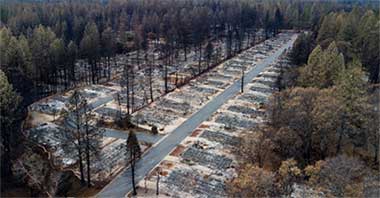
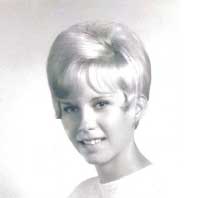
In 2018 the California town of Paradise was destroyed by the Camp Fire wildfire. My cousin, Clair Holmquist, lived there and died as a result of the fire. Two of my Yale classmates have dedicated their lives to fighting wildfires. 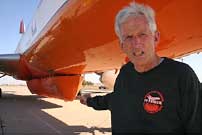
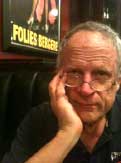 Tony Morris established Wildfire Research Network and Rick Hatton owns two DC-10 airplanes in his firm, 10 Tanker Air Carrier. The planes drop huge quantities of retardant on the fires. Sadly, this only treats the problem after it occurs. The problem is caused by global warming, severe drought, forest infestation, and high winds, all caused by climate change.
Tony Morris established Wildfire Research Network and Rick Hatton owns two DC-10 airplanes in his firm, 10 Tanker Air Carrier. The planes drop huge quantities of retardant on the fires. Sadly, this only treats the problem after it occurs. The problem is caused by global warming, severe drought, forest infestation, and high winds, all caused by climate change.
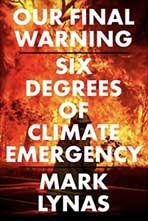
In his seminal book, Our Final Warming: Six Degrees of Climate Emergency, Mark Lynas writes definitively: “The deadly Camp Fire set a new record of 18,804 structures destroyed as it leveled the town of Paradise, and a state record was also set for the total area burned, which was 676,312 hectares. In two years, California spent over $1.5 billion on fire suppression, itself a new record. An analysis published in July 2019 showed that the major cause of the increase in summertime wildfires is the drying effect of rising temperatures, which have shot up by 1.4°C since the 1970s in California.
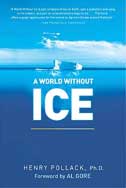
Looking at the problem through the lens of polar ice and high-altitude ice, Henry Pollack writes in A World Without Ice: “The seasonal shift in melting also leads to longer summers and longer dry seasons, with more opportunities for wildfires. Research on wildfires in the American West has shown that an extended dry season translates into a more intense fire season, with more wildfires that burn longer.”
Writing in The New York Times in September 2020, Michael Shear and Coral Davenport said: “To the global scientific community, the acres of scorched earth and ash-filled skies across the American West are the tragic but predictable result of accelerating climate change. Nearly two years ago, federal government scientists concluded that greenhouse gas emissions from burning fossil fuels could triple the frequency of severe fires across the Western states.” They quoted Mayor Eric M. Garcetti of Los Angeles: “Talk to a firefighter if you think that climate change isn’t real.”
In another article, The New York Times said: “The rules of fighting wildfires are changing because our climate is changing.” Governor Jay Inslee of Washington wrote in an open letter: “There is no fire suppression plan on this planet that does anyone any good if it doesn’t even acknowledge the role of climate change.”
In an interview with Axios, Governor Gavin Newsom of California said: “We obviously feel very strongly that the hots are getting hotter, the dries are getting dryer. When we're having heat domes the likes of which we've never seen in our history, the hottest August ever in the history of this state, the ferocity of these fires, the drought for five-plus years, losing 163 million trees to that drought, something's happened to the plumbing of the world. And we come from a perspective, humbly, where we submit that the science and observed evidence make it self-evident that climate change is real and is exacerbating this."
These scientists and political leaders are telling us that while it is necessary to fight wildfires, we’re just fiddling while America burns. We must fight the cause, which is global warming from carbon-dioxide emissions. 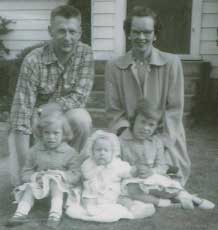 Our dependency on fossil fuels must cease. Wind, solar, and hydroelectric power are now competitive with fossil fuels, and we must invest in them for the future of the planet — indeed, for the future of our grandchildren.
Our dependency on fossil fuels must cease. Wind, solar, and hydroelectric power are now competitive with fossil fuels, and we must invest in them for the future of the planet — indeed, for the future of our grandchildren.
That’s why climate change is personal for me … for my lost cousin, my classmates on the West Coast, and most of all for my children and grandchildren. Here is a photo of my cousin Claire with her older two sisters. They’re all a little younger than my granddaughters are today. Could we have saved Claire from a premature death? It’s time to take personal responsibility for our future generations.
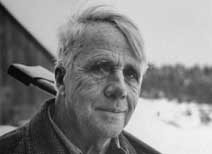
Fire and Ice
Robert Frost (1874-1963)
Some say the world will end in fire,
Some say in ice.
From what I've tasted of desire
I hold with those who favor fire.
But if it had to perish twice,
I think I know enough of hate
To know that for destruction ice
Is also great
And would suffice.
Anthony M. (Tony) Lavely is a career food-industry marketing executive. He was a principal in the Ruth’s Chris Steak House IPO in 2005 and was instrumental in finding and helping almost 300 employees displaced by Hurricane Katrina. In his role as Secretary for the Yale Class of 1964, he publicizes the environmental work that has been done by classmates over the years. Currently, Tony is engaged in a series of climate change workshops with a curriculum developed by Elders Climate Action. He is also part of a small working group of Yale classmates to foster communications about climate change.

